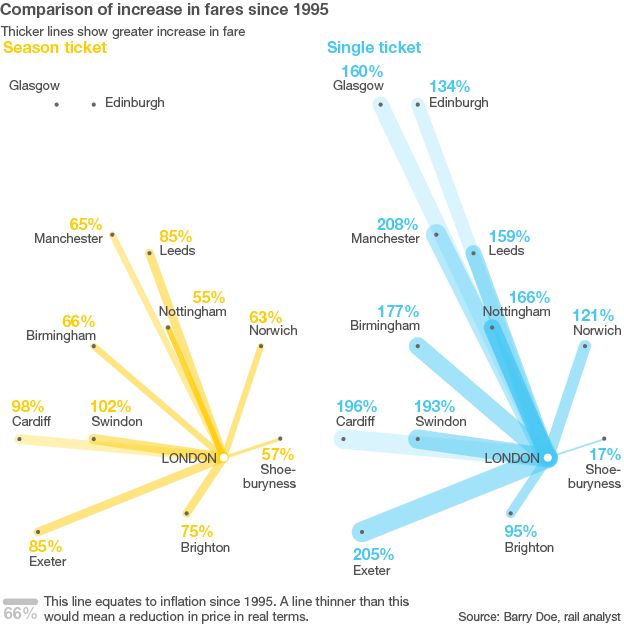Cardiff123
Established Member
- Joined
- 10 Mar 2013
- Messages
- 1,318
Nothing to do with yours (and successive) governments choosing to reduce taxpayer support for the railway and push costs increasingly on to passengers, Mr. Grayling?
https://www.bbc.co.uk/news/uk-46731749
https://www.bbc.co.uk/news/uk-46731749
Chris Grayling blames unions for rail fare hike
Transport Secretary Chris Grayling has accused trade unions of driving the 3.1% increase in rail fares.
Mr Grayling told the BBC unions had demanded "higher pay rises than anyone else" and threatened strikes if they did not get them.
The Rail, Maritime and Transport Union said it was "scandalous" that Mr Grayling was trying to blame workers.
Rail fares have increased by an average of almost 3% in Scotland and 3.1% in England and Wales.
Labour leader Jeremy Corbyn called the increase a "disgrace" and said it "drives people away from public transport".
Mr Grayling told the BBC Radio 4's Today programme: "The reality is the fare increases are higher than they should be because the unions demand - with threats of national rail strikes if they don't get them - higher pay rises than anybody else."
In August, the government asked the train operators and unions to use a different, lower, inflation measure to set pay and fare increases - which the RMT opposed.
Mick Cash, general secretary of RMT, accused Mr Grayling of trying to blame rail workers for problems "caused by privatisation of the railways".
Last edited:

